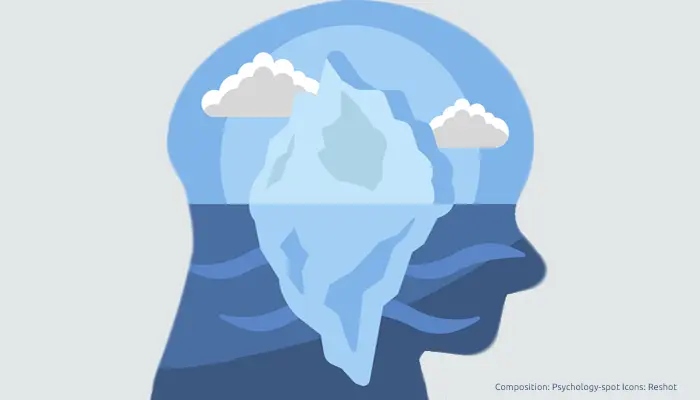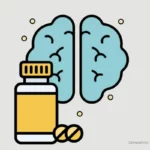
Throughout life we are exposed to difficult situations that test our resilience, strength and mental stability. Losing a loved one, experiencing a natural disaster, being a victim of physical or psychological violence, as well as suffering an accident or losing a job can be adverse situations that put us against the ropes and emotionally destabilize us, causing great anguish.
However, most people manage to recover and move on with their lives in a relatively short period of time from such misfortunes. In fact, we all have incredible inner healing power. Unfortunately, other people do not recover and remain trapped in the painful experience. So they develop a psychological trauma.
What is a psychological trauma? The emotional wound that does not heal
The word “trauma” comes from the Greek word τραῦμα, which means rupture or injury. Initially used in the medical field, especially in surgery, it later became popular in psychiatry and clinical psychology.
Basically, “A trauma is an emotional response to a terrible event that prevents persons from moving on with their lives,” as defined by the American Psychological Association. It occurs when we experience a situation that we consider threatening, either physically or psychologically, which exceeds our coping resources, so that we are unable to face it assertively and integrate it into our life story.
As a result of this traumatic situation, we feel overwhelmed, generally with a feeling of helplessness, fear and confusion. In fact, often that traumatic event destroys our sense of well-being, leaving us feeling powerless and isolated in a dangerous world.
When we experience a threatening event, our nervous system reacts by going into survival mode. Signals originating from the amygdala, a small structure in the brain, tell our bodies to prepare for fight or flight. However, if we cannot fight or flee from the threat, the nervous system chooses to freeze.
That kind of “emotional shutdown” prevents us from collapsing and helps us survive, but it is maladaptive if it persists over time. When we are traumatized, our nervous system remains frozen in its response to the threat. That makes even safe environments and people seem threatening to us. Basically, we get stuck in the traumatic event, reliving the sensations and emotions associated with it.
The 3 types of psychological trauma
Responses to a potentially traumatic situation vary from person to person. In fact, we don’t experience the same traumatic event in the same way. However, there are certain situations and fairly widespread responses that we must be aware of in order to detect the different types of emotional trauma and deal with them as best as possible or request specialized help to minimize their impact and allow us to recover emotional stability as soon as possible.
1. Acute trauma, the unexpected blow of life
This type of trauma is the result of a single distressing event, such as a car accident, mugging, rape, terrorist attack, mass shooting, or a natural disaster. These are extreme and unexpected situations that threaten our emotional security or even our physical integrity.
That event creates a lasting impression on our mind, leaving an intense emotional imprint at the brain level. The experience is not fixed in words but through experiences, which is why we tend to relive it over and over again through flashbacks. These memories are not a rational narrative of what happened but rather a re-experiencing of the unpleasant sensations and emotions experienced during the traumatic event.
When this type of trauma goes untreated and the persons fails to process it and incorporate it into their life history, it leads to post-traumatic stress disorder. It is usually accompanied by nightmares, panic attacks, excessive anxiety, constant tension, lack of confidence and a feeling of disconnection with the environment, which is why the person may have trouble carrying out their day-to-day life.
2. Chronic or cumulative trauma, trapped in a sea of problems
This type of trauma occurs when we are exposed to distressing traumatic events in the long term or over an extended period of time. Chronic trauma is often the result of serious illness, sustained domestic violence over time, systematic bullying, or exposure to extreme situations such as war.
However, the concatenation of several acute adverse events can also cause emotional trauma. “Bad streaks,” such as job loss coupled with a car accident and/or the death of a loved one, can generate a cumulative trauma as each event further deteriorates our already depleted psychological resources to deal with adversity. Likewise, untreated acute trauma can progress to become chronic trauma.
Sometimes the symptoms of chronic trauma appear after a long time or even years after the event. To a large extent, this type of situation tends to push us to assume maladaptive coping styles such as avoidance, rationalization, social isolation, or substance abuse. However, when symptoms appear they can be extremely distressing and even disabling.
3. Complex Trauma or CPTSD, the wound left by relationships
This type of psychological trauma occurs as a result of exposure to multiple and varied traumatic events or experiences that are somewhat related to each other and generally framed within the context of interpersonal relationships. These adverse experiences begin in childhood, have a recurring nature, and are inflicted by people who should be a source of love, security, and support. Such is the case, for example, with experiences of abuse or neglect in childhood.
However, complex trauma, or CPTSD, can also occur in adulthood, such as when we get involved in toxic relationships that undermine our independence and self-esteem. The common factor in this type of emotional trauma is that persons feel “trapped” in this situation, so that its impact lasts over time, eroding their psychological resources to deal with the problem assertively.
As a result, this kind of psychological trauma ends up generating a state of learned helplessness. Persons may feel ashamed and bad with themselves, blaming themselves for what has happened to them, even though they are not responsible for it. They often develop low self-esteem and a feeling of inadequacy that ends up affecting their relationships and, obviously, weighing down their well-being.
Finally, it is important to keep in mind that regardless of the type of emotional trauma we suffer, we can recover from that experience. It is never too late. Of course, this does not mean that it is easy, that we can simply forget the traumatic experiences. It means that there is room for healing and recovery.
For this, it is essential to stop escaping the traumatic experience, accept what happened and give it meaning in order to incorporate it into our life story. Only in this way will we be able to lighten its emotional weight, so that it stops harming us and conditioning our lives.
Sources:
Perrotta G. (2019) Psychological Trauma: Definition, Clinical Contexts, Neural Correlations and Therapeutic Approaches Recent Discoveries. Current Research in Psychiatry and Brain Disorders; 1: 1-6.
D’Andrea, W. et. Al. (2011) Physical health problems after single trauma exposure: when stress takes root in the body. J Am Psychiatr Nurses Assoc; 17(6): 378-392.
Nutt, D. J. & Malizia, A. L. (2004) Structural and functional brain changes in posttraumatic stress disorder. The Journal of Clinical Psychiatry; 65(Suppl 1): 11-17.



